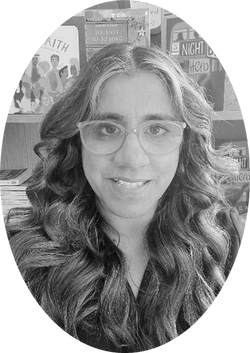|
6/7/2023 0 Comments SWIFT Diversity, Equality and Inclusion (DEI) Professional Community | End of Term Report“We allowed ourselves to feel uncomfortable with some of the conversations and recognising that we all hold onto prejudice.”  I was invited by SWIFT Director, Martin Smith to lead the termly SWIFT Diversity, Equality and Inclusion (DEI) Professional Community for this academic year and I was overwhelmed by the large number of people who attended the first Autumn Term session. Particularly, as I know how busy everyone is in school so people have to be selective about the training they choose to attend. It was pleasing that a good range of people joined the group, including Headteachers, senior leaders and teachers, some of whom were leading on DEI in their organisation. Moreover, the same people returned to the termly sessions, which showed that it meant something to them. Others joined us along the way with about 20 to 25 in attendance for our in-person meetings at Countess Wear Primary School in Exeter. It was decided to meet in-person because during the pandemic a lot of this work had been virtual and it felt important to meet face-to-face together, since DEI work, benefits from conversation and discussion. I started at the beginning, because I feel that if people dive into doing work on DEI without fully understanding equality and diversity, unintended mistakes or unintentional offence is a potential risk. Furthermore, if it is rushed, there is not always the buy-in and engagement from staff, parents or pupils. One of the first things we looked at in the Autumn Term launch meeting was helping delegates to understand the rationale for DEI work and thinking how to unpick and identify any biases we hold ourselves. This included allowing ourselves to feel uncomfortable with some of the conversations and recognising that we all hold onto prejudice, even if we do not always think that we do so. This was an important step before moving forward and allowing the group to cascade the same work with their own staff. At this point, we did not discuss children at all; which I understand probably seems counterintuitive in education. But I appreciate from my experience that you have to work firstly with all the staff and get their buy-in and understanding. This includes senior leadership, administrators, meal time assistants, cleaners and anyone who works in the school, so that they all have the same culture, ethos and philosophy. As part of trying to uncover potential pitfalls, we also looked at vocabulary and language. This obviously changes over time; some is clearly unacceptable but other words can be ambiguous for some people. So, we went through what is acceptable and what is unacceptable. For example, the use of “coloured" is clearly unacceptable as it is associated with segregation and was a word given to people. However, the term “person of colour” has come into the vernacular and some are not quite sure why that would be acceptable, prompting discussion about the differences between those two terms. We also looked at was the use of a person's names as this can affect their feeling of belonging. Following this first meeting, the feedback was very positive and the group had clearly found it to be useful and had opportunity to say what they would like in the next sessions. We also discussed some of the work that they have done in schools to promote DEI and I reiterated throughout that it was not a training session; but to facilitate and share the good work already happening in schools, whilst understanding for those at the very beginning of their journey wanted to have examples to take to their schools. Looking to diversifying the curriculum, from my own primary experience we started to talk about black history and how to talk to children about LGBTQ+ and how this needs to be done gently through assemblies and lesson planning and to drip-feed to parents. It was also lovely to discuss examples for secondary colleagues and deeper issues; for example, microaggressions and what that means; building on the Autumn Term session of unconscious bias where microaggressions can happen, and again, reflecting on what we might have unwittingly done ourselves. For example, people constantly assuming that a black person could not swim and if this was repeatedly said to them, thinking how it made them feel and other examples of microaggressions that teenagers receive within the classroom. We next talked about the tricky theme of white privilege that felt appropriate in this second session as part of building knowledge and understanding, given it can be hard and sometimes raises hackles. But once we understand that we all have biases and prejudices (even if we do not realise that we do), it is easier to appreciate the concept. The Summer Term session was in two parts; a repeat of the first session as a number of new people joined the programme and I also invited two speakers as I was conscious that we had looked at all aspects of diversity, but obviously, because of my own lived experience as a person of colour, most of my authentic voice examples were inevitably to do with racism. As a transgender person, Taylor Simmonds spoke to us about his training on LGBTQ+ in his own school and talked authentically with a particular focus on transgender in how we support children who might be thinking that is perhaps where they are sitting. It was an informative presentation with examples of how to support pupils in school and the challenges of how to support parents who might find it challenging or are unsure how to react if their child is thinking that they may be transgender or gender fluid. Taylor explained the terminology and recognising a child might wish to use a different name. But also the child might wish to revert to their original name, and there is not necessarily a permanent change and the need to accept where the child is on their journey at that particular point. Kate Paiano was our second speaker. Her company, Tiny Travels has a number of artefacts from different countries around the world and she previously visited my schools. Originally, I thought it was going to be Early Years appropriate. But I was amazed, because her original artefacts were clearly about diversification of the curriculum, but not as a bolt-on, as it helped to understand the authentic cultures of people and was an opportunity for all the children to learn. We had a workshop with her at Eastertime in my schools and looked at Easter around the world, tackling some difficult themes with the children. For example, stereotypes and colonialism as well as the question of why we were looking at countries in South America and why they follow the Christian festival of Easter due to colonialism. Kate’s presentation in our DEI session was excellent and she brought in some examples of resources that she uses in schools with the children, including a number of dolls from different ethnic backgrounds. For example, asking children, if you were a doctor and all these dolls were poorly, who would you go to first, picking up on white privilege and stereotypes with lots of real examples to use in school. The DEI journey is never really over and many of the group said they would like to do more work and I was pleased so many came together with their team; which shows commitment given the recurrent issue of balancing the competing priorities for school leaders.
Looking to next year, we would like to think about how to involve children, pupils and parents and the treatment of women and misogyny; which is a big issue for young people, particularly in view of some social media influences and tackling some long-held values about women's roles of interest for our rural communities and girls’ aspirations, questioning whether we are completely an equal society. As a Headteacher in Devon, I have worked in London that provides me with an understanding about the issues here in Devon and how many schools have little or no diversity at all. Hence, trying to learn and teach about diversity in a place where there is not much diversity is one of the barriers. It is possible to think that we do not need to do any DEI work. But then there are some schools that are very diverse but have other issues as well. Schools can sometime be a bubble of thinking everything is equal. However, there are still views that need to be challenged, for example, the use of language, “don't cry like a girl.” Personally, for me leading the SWIFT DEI Professional Community has been important and enjoyable and has kept me reflective about the practice in my own schools and I have learned from others within the Community, and brought things back. It is not a one-way process. As we move further away from the shocking death of George Floyd, we do not want to forget and there is always more that needs to be done and education can play a big part. In the media there is significantly more representation in adverts and campaigns that is moving quickly because they have the resources and many companies are using diverse models and for example, displaying the LGBT flag on social media profiles, prompting comments, of course; some of which will be negative. But they are running with it. Whereas I think education is sometimes still lagging behind and our curriculum needs to progress. So, yes, lots and lots more work to be done and we need to keep going. Obviously, the proof is in the pudding with people coming back to engage and I am already looking forward to my work with next year’s SWIFT Professional Community. By Mrs Ruhaina Alford, Executive Headteacher, The Carey Federation (Halwill and Ashwater Primary Schools)
0 Comments
Your comment will be posted after it is approved.
Leave a Reply. |
SWIFT News
|
SPONSORED BY
Join us, be a part of our SWIFT community |
© COPYRIGHT 2022 SOUTH WEST INSTITUTE FOR TEACHING SWIFT. ALL RIGHTS RESERVED | Website by brightblueC
VIEW OUR PRIVACY NOTICES | VIEW OUR COURSE T&CS
VIEW OUR PRIVACY NOTICES | VIEW OUR COURSE T&CS


 RSS Feed
RSS Feed





